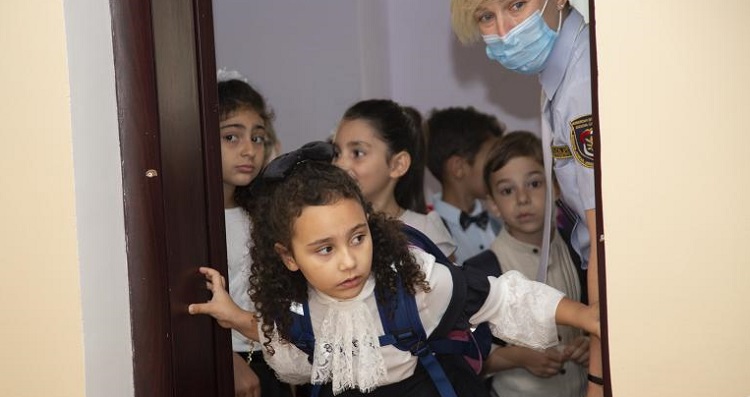UNICEF Georgia: ‘safe re-opening of schools, preschools must be prioritized during lifting of restrictions’

Starting February 1, schools open their doors for students throughout Georgia except Tbilisi, Kutaisi and Rustavi. In these cities schools will open if the community transmission rate of coronavirus will decrease to four per cent over seven days. Photo: UNICEF Georgia.
UNICEF Georgia welcomes the Georgian government’s plan to gradually open schools in the cities and the villages of Georgia. An official statement of the organisation reads that safe re-opening of schools and preschools must be prioritised during lifting the restrictions related to the Covid-19 pandemic in the country.
- Parents of school children to choose between in-person, online studies starting February 1
- Georgia begins lifting several Covid-19 restrictions today
The statement of the UNICEF Georgia also reads that school closures have had a negative effect on children all around the world. Children’s ability to read, write and do basic math has suffered, and skills they need to thrive in the 21th century economy have diminished.
Children’s health, development, safety and well-being are at risk. The most vulnerable children- children with disabilities, children living in poor families – are under the increased risk of being left behind”, reads the statement.
UNICEF says that closing schools must be a measure of last resort, after all other options have been considered. ‘If children are faced with another year of school closures, the effects will be felt for generations to come’.
Children in several big cities of Georgia are still affected by Covid-19 school closures, forcing them to rely on virtual learning. Now that digital learning has become the primary means to access education, the digital divide is deepening the existing inequalities. The closing of schools leaves more than 50,000 children in Georgia with no access to education. It is crucial that catch-up classes are provided to ensure that children, who have been unable to learn remotely are not left behind”, reads the statement of UNICEF Georgia.
UNICEF says that teachers should be prioritised to receive the Covid-19 vaccine, once frontline health personnel and high-risk populations are vaccinated. This will help protect teachers from the virus, allow them to teach in person, and ultimately keep schools open.
 Tweet
Tweet  Share
Share